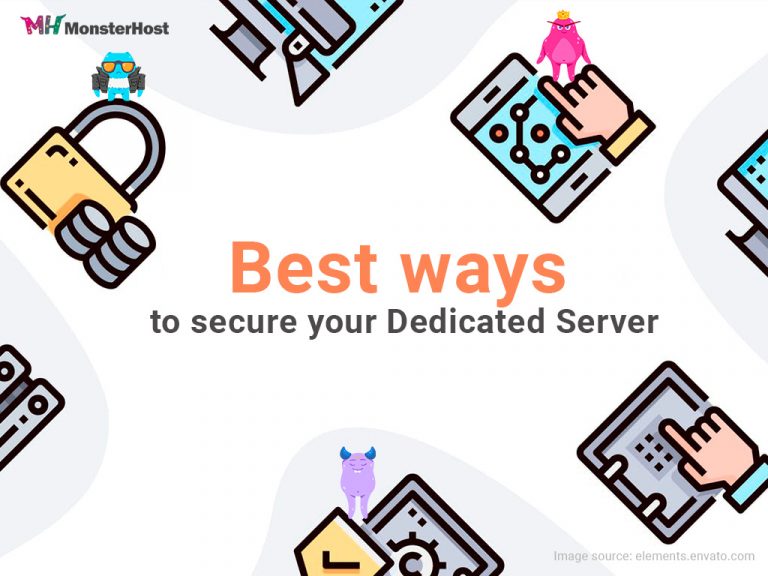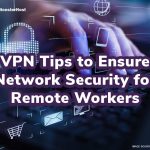Last updated: Apr, 2024
Dedicated Servers are the foremost hosting environment on the market without a doubt, with its power unmatched next to the cost-effective VPS hosting. While dedicated hosting delivers in terms of overall features and the amazing power of an entire server at your website’s disposal, security is still a concern and should be made a priority.
In reality, many users are under the impression that because their website is housed on one powerful server that it renders it invulnerable to cybercriminals and hackers.
That couldn’t be further from the truth.
Many major companies have fallen prey to cybercriminals and hackers effortlessly breaching the defenses of their dedicated server.
To avoid experiencing an expensive take-down, protect your website, your brand awareness and your business with ironclad security measures in place. Discuss security measures at your disposal with your hosting provider and make it priority number one.
To ensure you get started, we’ve outlined an 8-point security checklist so you can secure your dedicated server and thus defend your business’ reputation, brand awareness, valuable data, sensitive customer information and website.
The best-dedicated server is a secure environment with all measures of security strictly enforced, along with around the clock monitoring.
Let’s dive into the ways you can defend and secure your server.
Table of Contents
1. Install Updates on a Regular Basis
This may seem like a basic step and a no-brainer, but this is commonly overlooked or forgotten, which then leaves servers vulnerable and disposed to a cyber-attack. Hackers and cybercriminals stay in the know about software update releases and will scan websites by the hundreds daily searching for any vulnerability to exploit.
Outdated software is one of the most exploited area of website vulnerabilities. Keeping track of your updates is vital to your overall dedicated server security. Additionally, when updating software, check and install newly released security patches as well.
Never delay an update or save it for the next date. That is similar to leaving a window of opportunity open for a hacker to pounce and own your server. If you find that staying up to date with this is too much then be sure to opt for a managed server from your hosting provider.
2. Only Install Software You Need
This piggy-backs on the first checkpoint of security. Only install software that you absolutely need to operate your server and by extension your website. Leaving software installed on your server that isn’t frequently used, updated or isn’t necessary is another one of those windows inviting hackers to come and play with your server and launch an attack.
Be exceptionally alert if you are running a WordPress site and using a variety of Plugins. Check all plugins for updates too. Only install Plugins and software from trustworthy sources and only what you unquestionably require. Everything else runs a very high-security risk.
3. Back-up Regularly
Anything can go wrong at any given point and you can lose all of your data due to a technical fluke or worse a cyber assault. As aforementioned, there have been numerous companies that have succumbed to a security breach by cybercriminals.
In the event that you’ve been outsmarted despite all of your efforts at implementing security measures, you want to have a full back up of your entire website, company files, and any other crucial data all saved in a cloud back-up service.
This ensures swift restoration of spammed or lost website content while letting you reinforce vulnerable areas. Experiencing prolonged downtime or having your site offline can radically affect your business and its reputation in a negative way.
What’s worst is losing all of your data with no recovery copy, including all of the content like blog posts and videos you’ve created, along with your confidential and important files to a hacker’s malicious attack.
Back-up is as much a security measure as it is a safety net. Make it a priority.
4. Always Use Trusted Networks
Another crucial security checkpoint is the use of login credentials for your website and always using trusted networks when logging into your dedicated hosting service.
The local network that your computer connects to can be a susceptible security point if there are security weaknesses. Actually, anyone in your company can pose a risk if they log in to the server from a public network. So, create procedures that require a single network as the trusted and secured network for server logins.
Be attentive and decide who has access to the server and regularly change login credentials for an extra layer of security.
5. Get the Right Protection
Our priority is security and consequently when considering security software for the dedicated hosting service you need to choose wisely. You want to confer with your hosting provider as well and choose a server type that offers you some built-in protection. For example, the best-dedicated hosting plan will include DDOS protection. In addition to this, examine what other security features are a part of the plan or available to you as an add-on service from your host. Discuss your options for security at length and always go with the best and most reliable of options.
6. Secure SSH and Remote Access
The next set of security measures to enact include altering the SSH port, disabling the direct root login (in order to thwart hackers), restrict access to certain IP addresses that may be harmful. Use SSH keys as an alternative to passwords when securing SSH access to your dedicated server.
7. Maintain and Secure Databases
Another vulnerable point of entry exploited by cybercriminals are databases where possible sensitive financial customer information may be stored. For these reasons your databases should be a top priority when it comes to security. Best practices ensure that databases are SQL injection resistant, keep database user privilege to a minimum, delete unnecessary data, and restrict areas of interaction between the customers and the database where not required. To help mitigate this there are various database administrative tools online that you can take advantage of.
8. Establish an Emergency Protocol
Implement an emergency protocol as a pre-emptive measure in the event of a security breach, website loss or major data loss. If someone successfully breach your network ensure that you address it expediently and effectively. Tips for your emergency protocol:
- Set a point of contact at your company’s data center with their contact details available.
- Create a scenario about how a potential security breach can impact customers.
- In the event that user data is loss have a plan in place for resetting usernames and passwords.
- Have a statement pre-written and prepared to blast to your customer email list. Also have one at hand to post on your website immediately.
- Designate a system admin lead and an assistant leader if that person is unavailable.
- Have a contact person ready at your hosting provider in Technical Support if needed.
- Establish a relationship with an external management firm and contact them in the event of a breach.
The Take-Away
Like any other hosting solution, dedicated servers require multiple layers of security to protect the server, the website, the company’s brand awareness and its client’s data and safety. Securing your dedicated server’s security does not have to be a heartache. In fact, If you followed our tips, you will see that the process is pretty simple. Consequently, helping you to make informed choices on the best servers for your business.






